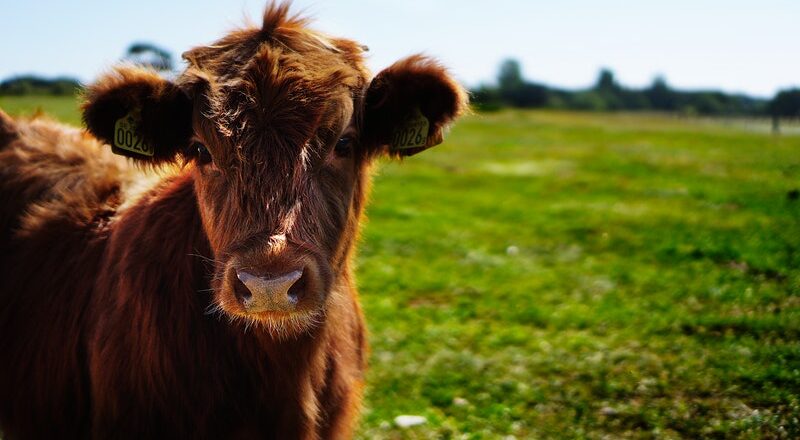
IPES Report: “Fake meat will not save the planet.”
Despite the media hype and investments in marketing, lobbying and advertising, synthetic and vegetable meat do not solve environmental problems, and pose a health risk. This was revealed by the new IPES-Food report.
A new report by IPES-Food, “The Politics of Protein”, sheds light on the great debate around livestock farming, alternative proteins and sustainability. The report examines all the misleading statements made today on these issues, warning of the negative consequences that could arise.
Meat and animal proteins are constantly in the spotlight as the leading cause of climate change. Still, IPES-Food warns that the ideas spread in public opinion do not consider so many facets, such as the differences between production systems and regions of the world. Moreover, large companies are investing in a wide range of new technologies, such as plant-based meat substitutes and lab-grown meat, with the support of some governments worldwide. But fake meat will not save the planet.
Phil Howard, a lead author of the report, says: “It’s easy to see why people would be drawn to the marketing and hype, but meat techno-fixes will not save the planet. In many cases, they will worsen the problems with our industrial food system – fossil fuel dependence, industrial monocultures, pollution, poor work conditions, unhealthy diets, and control by massive corporations.”
Livestock farming plays an essential role in feeding the world’s population. It contributes to the livelihood of 1.7 billion smallholder farmers in the South of the world and plays a crucial economic role for about 60% of rural households in developing countries. The sector employs 4 million people in the EU and today accounts for 40-50% of agricultural GDP. Nevertheless, too many people do not have access to high-quality proteins of animal source foods, with 811 million malnourished people in 2020. In a world of an ever-growing population, climate crisis and threats to food security and human health, meat and protein are in the spotlight.
The #meat techno-fixes will not save the #planet: in many cases, they will worsen the problems with our industrial food system – fossil fuel dependence, industrial monocultures, pollution, poor work conditions, unhealthy diets, and… Click To TweetFAO estimates that livestock farming is responsible for 14.5% of global greenhouse gas emissions, while others calculate even higher percentages. Antibiotic resistance is another problem that humanity will face. The abuse of antibiotics causes the formation of resistant pathogens, which are estimated to increase by 40% by 2050. Awareness of these problems has increased, and there are many challenges ahead. But the way forward is not clear. The public debate is based on conflicting statements with different proposals.
Among the various solutions is the transition to different protein sources in meat substitution, such as insects, plant-based meat alternatives and lab-grown meat. The transition to exclusively plant-based diets is promoted to discourage traditional meat consumption, with taxes on meat and misleading information about the damages caused by meat on human health and the planet. Public and private investments are flowing into a range of sectors, with the support of governments to develop lab-grown meat and plant-based substitutes. But the assumptions on which these strategies are based on uncertain evidence. The problem is thus addressed simplistically, not considering all its aspects and proposing simple solutions to very complex issues.
For example, there is an excessive emphasis on proteins. All the debates are focused on guaranteeing proteins to the world population, but in reality, proteins are only a part of the needs. The same is for sustainability, reducing greenhouse gas emissions and ignoring other problems, such as biodiversity loss, chemical pollution, land degradation, hunger and micronutrient deficiencies. The positive effects of livestock on the territories and the diversity of production systems are mostly ignored. It is not considered that animals constitute the only source of income in many agricultural communities. They provide food, leather, wool, labour, and natural fertilizer for lands, helping maintain the landscape, exploiting marginal lands, and avoiding hydrogeological instability.
#Livestock #farming plays an essential role in feeding the world's population, but too many people do not have access to high-quality #proteins of animal source foods, with 811 million #malnourished people in 2020. Click To TweetThe nutritional value of meat, a source of high-quality bioavailable proteins and essential micronutrients that plant-based diets fail to guarantee, is also not considered. Pastoral systems, small-scale production and the diversity of territories are also neglected, proposing universal solutions that do not consider the different realities and could even worsen the situation. The proposed technological solutions are based on alternative proteins produced using synthetic ingredients with energy-intensive industrial methods. So, they create hyper-processed foods, bringing no benefit in sustainability or health.
When problems are presented simplistically, lab-grown meat and plant-based substitutes seem to be the best solutions without considering risks. Therefore, it is necessary to ensure access to healthy, complete and sustainable diets, with a transition of the entire food system and not just a protein transition penalizing livestock farming. The new IPES-Food report reveals that fake meat does not keep its sustainability promises and is not the solution as its promoters claim.
The alternative protein race and the protein obsession in marketing and media help strengthen these technologies, which increase dependence on fossil fuel energy, promote standardized diets made of ultra-processed foods, endorse the loss of livestock-dependent livelihoods and harm populations and the planet.
The #lab-grown meat and plant-based substitutes seem to be the best solutions without considering risks, but the proposed technological solutions are based on #alternative #proteins produced using synthetic ingredients with… Click To TweetThe report concludes that there’s lots of hype about meat and protein, narrowly focused on CO2. It ignores how food is produced and the differences between world regions, failing to see the whole food system and focusing on simplistic silver bullet solutions. The study proposes to focus on achieving a transformation to ‘sustainable food systems’ – not a ‘protein transition’.
It should be a priority to reform that delivers on all aspects of sustainability, starting at a regional level, reclaiming public resources from ‘big protein’, realigning innovation pathways with the public good, and finally resetting the debate. IPES calls for an end to public funding of such ‘silver bullet’ technologies and promotes organizational diversity through antitrust and competition laws to block the’ protein’ monopolies.





